Many people throughout history have searched for the secret to immortality, and while we haven't gotten there yet, advancements in medical science and technology have drastically increased our lifespans over time. Still, even though some people manage to live well into their nineties and beyond, there are still plenty of us getting seriously sick and even dying long before we should. The Japanese, however, have a curiously lower disease and mortality rate than the United States does. What is this country doing that we aren't, and how can we achieve the same longevity as they have?
Japanese culture has long been a subject of interest for Americans, largely because theirs is so different from our own. Everything from their fashion, to their TV shows, to their food is nothing like the stuff that has originated in the States. We've taken many aspects of their culture and made them our own, including recipes such as these healthy and delicious soba noodles, but what we should really be taking notes on is their healthy lifestyle. Since the average life expectancy in Japan is nearly five years higher than it is in the U.S., they're clearly doing something right, and if we pay attention, we might never have to worry about these unexpected symptoms of cancer.
If you're interested in living a healthier and longer life, take a look at these healthy habits of the Japanese and see which ones you could incorporate into your daily routine. I had no idea about number six, but now that I do, I'm going to be eating it a lot more!
Make sure you SHARE these health tips with everyone you know!
1. They drink lots of tea
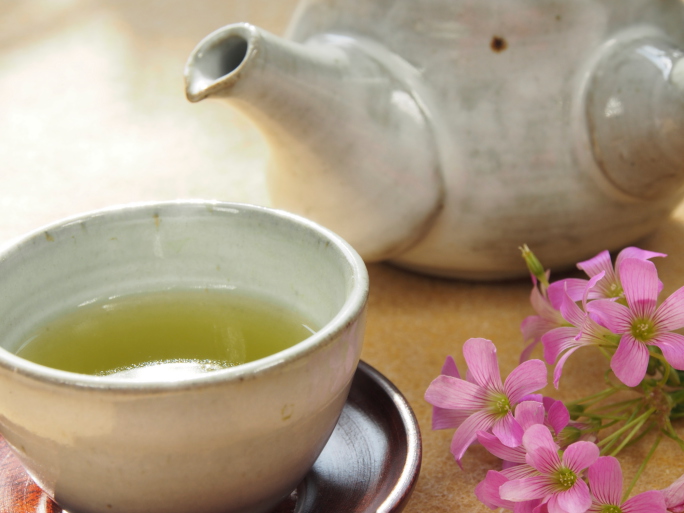
For the Japanese, tea isn't just a beverage — it's part of their culture. Green tea in particular is popular in this country, and with all its health benefits, including reduced cancer, lower body weight, and a lower risk of heart disease, it's no wonder their rate of illness is so low. Have at least three cups of green tea every day to start seeing the numerous wonders this drink can work.
2. They consume lots of vegetables.
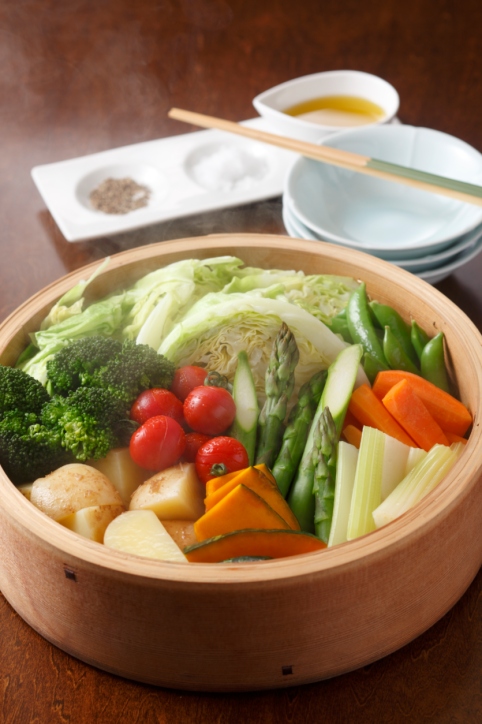
Vegetables in particular are a huge part of a standard Japanese diet. Unlike in the United States, where vegetables are often a mere side dish to a carb-heavy, meat-heavy meal, the Japanese often make vegetables the main focus of the dish, while other types of food are afterthoughts. It's no secret that eating lots of veggies can help prevent disease and keep the pounds off, so perhaps we should take a page out of their book and make produce the main attraction on our plates.
3. They eat lots of rice.
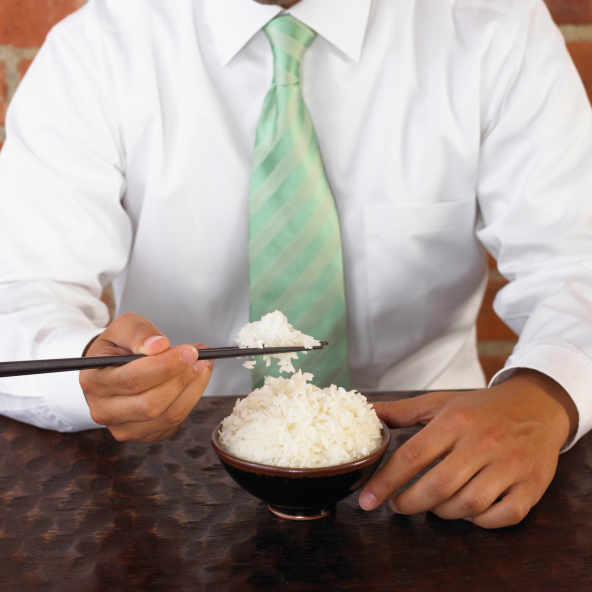
Sure, rice is a carb, and like any carbohydrate, too much of it will make you gain weight. However, when eaten in moderation, rice is really good for you. It contains lots of nutrients, and even a little bit will help fill you up so you don't eat so much. This grain is a dietary staple in Japan, and you should make it part of your daily meals as well.
4. They eat minimal meat
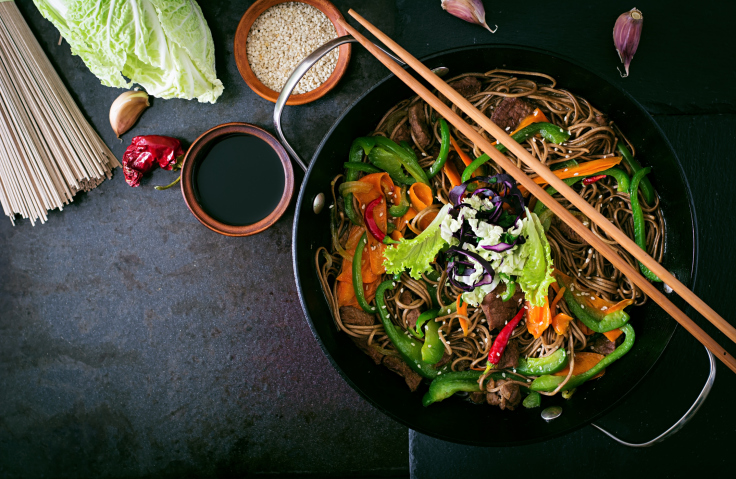
Traditional Japanese food forgoes massive burgers and steaks for smaller portions of meat. While it's common in the U.S. for protein to be our main dish, many meals in Japan have it on the side instead or mixed in with noodles or soup. Since too much meat can up your risk of heart disease, obesity, and other diet-related illnesses, it should come as no surprise that consuming it in smaller quantities can greatly increase your lifespan.
5. The meat they do eat is mostly fish
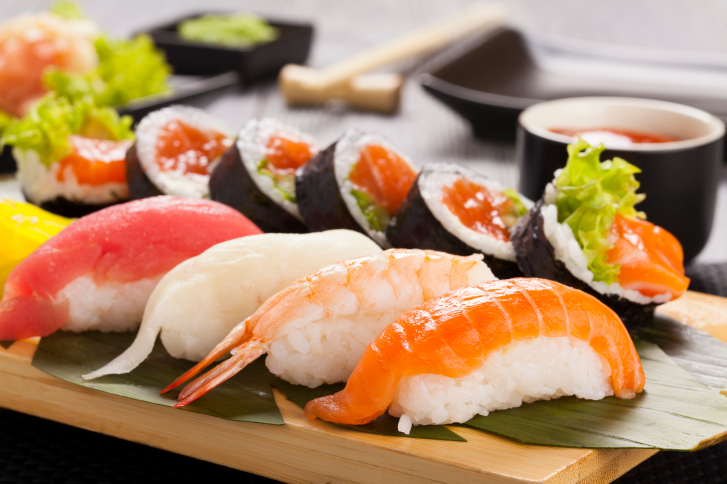
Sushi lovers know that there's nothing like a bit of raw fish and rice to make your taste buds happy. But fish is also good for you in the long term, too. Many species, including salmon, contain Omega-3 fatty acids, which are great for both your heart and your brain. Fish is also leaner and more protein-dense than meats such as beef or chicken, so you can feel full while eating less of it.
6. They ferment their foods
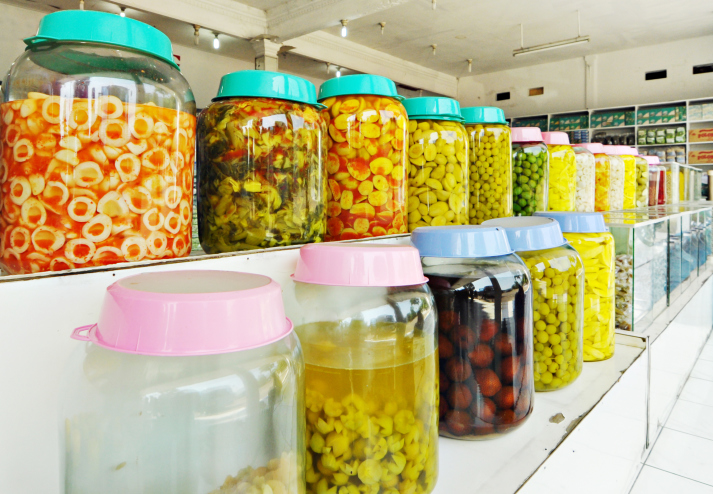
You're probably familiar with some fermented Japanese foods, including soy sauce and the pickled ginger that comes with sushi. But a traditional Japanese diet includes many more fermented foods, including miso paste, natto (a kind of fermented soy bean), and pickled vegetables. Adding just a few of these foods to your diet every week can ease digestion and strengthen your immune system.
7. They have a low-sodium diet
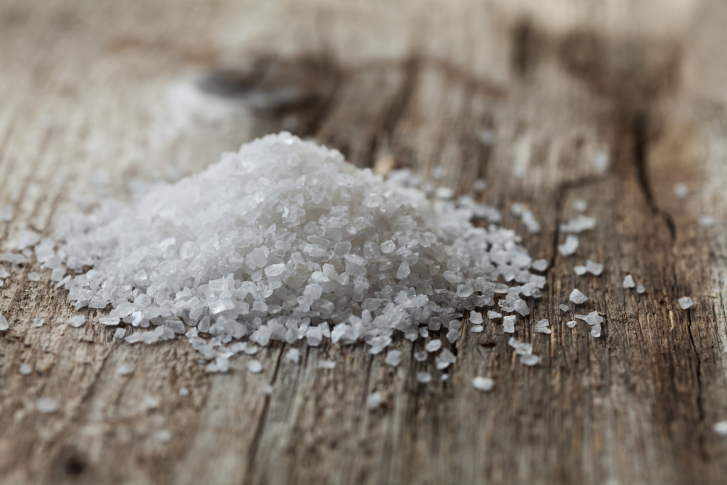
To be fair, foods such as soy sauce and miso soup aren't exactly "low sodium," but health officials in multiple Japanese cities have recently been making an effort to educate the public on the harmful effects of excessive sodium intake (which can include hypertension and heart problems). Once citizens began reducing their salt consumption, their health began to improve. In the city of Nagano, life expectancy jumped a shocking three years once residents began decreasing the amount of sodium they took in!
8. Local businesses get involved

From supermarkets distributing health care pamphlets to banks and employers offering incentives for people to get regular checkups, good health is clearly a community effort in Japan. Even though keeping ourselves healthy is our own responsibility, it certainly helps when we have people backing us up. Just imagine how much more encouraged we'd feel to take care of our bodies if we were pushed to do so everywhere we went!
9. They focus on preventative health care.

It's largely due to the incentives provided by employers and businesses, but the Japanese still focus on preventative health care much more than Americans do. Regular checkups help stop illnesses before they get too severe, leading to fewer invasive surgeries and less intense medication. Scheduling a yearly appointment might seem like a lot of hassle at the time, but it could save you a lot of grief and money down the road.
10. They stay active.

A healthy diet can only do so much for you if you don't exercise, but people in Japan have that part of a healthy lifestyle down pat, too. This nation has plenty of walking trails to help citizens enjoy the scenery, and many people walk or bike to work instead of driving. Many people in the States have too long of a commute to be able to travel in such a way, but taking a walk during our lunch break or getting off the train a stop before we normally do can be small steps to a more active lifestyle.
11. They eat seaweed.
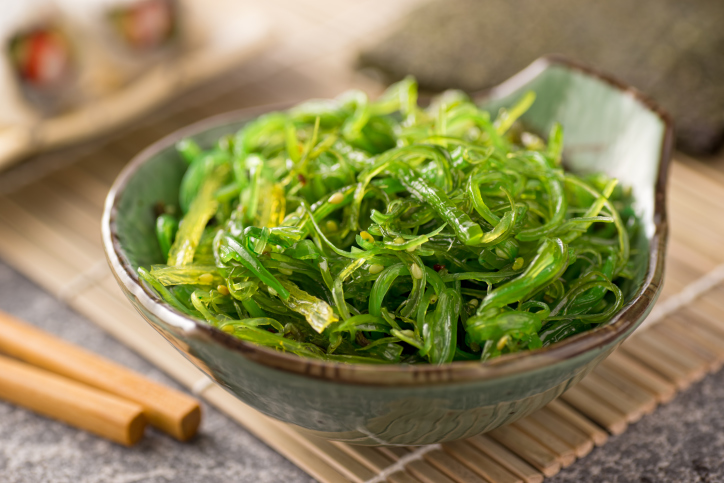
Many people in Western culture might cringe at the thought of eating algae, but seaweed is actually a delicious and healthy staple of the Japanese diet. It's served in a variety of different ways, including in soups, sushi, and on its own, and it's packed with nutrients that include iodine and potassium. If you aren't a fan of the flavor, many supplement vendors have seaweed pills and powders so you can get your daily dose without being grossed out.
12. They exercise portion control.
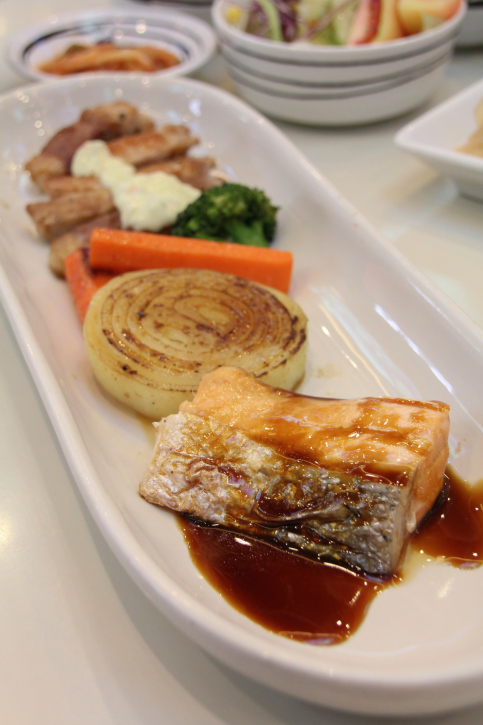
If you can only focus on changing your diet in one way, make it this one. American meals are often massive, taking up the entirety of large plates. And since many of us feel obligated to eat everything put in front of us, all those calories go right into our bodies. In many Eastern cultures, though, foods are served in much smaller quantities and on smaller plates. As a result, many people in Japan have smaller waistlines and a higher life expectancy.
Make sure you SHARE these tips for a long life with everyone you know!




